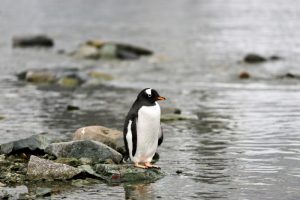Short answer
The average lifespan of a penguin is about 15 to 20 years in the wild.
Life expectancy
The average life span of a penguin varies depending on the species. Generally, most penguins have a life expectancy of around 15 to 20 years. However, some species can live longer. For example, the Emperor Penguin, which is the largest species of penguin, has been known to live up to 20 years in the wild, but some individuals have been recorded living up to 50 years in captivity.
The life span of a penguin is greatly influenced by various factors, including predation, food availability, climate conditions, and reproductive success. Penguins face a high risk of predation from marine mammals, such as seals and orcas, and even from avian predators like skuas. Additionally, changes in their environment and food availability due to factors like climate change can impact their overall health and longevity.
Reproductive success also plays a significant role in a penguin's life span. Penguins typically reach sexual maturity between 3 to 8 years of age, depending on the species. Once they start breeding, their life span can be influenced by successful breeding seasons, as failed breeding attempts might lead to lower survival rates and overall shorter life spans.
In conclusion, the average life span of a penguin ranges from 15 to 20 years, but can vary depending on the species and various environmental factors. While some penguins can live longer, others might have shorter life spans due to predation risks, changes in habitat and food availability, as well as reproductive success. The study of penguin longevity and understanding the factors that affect their life span can contribute to conservation efforts aimed at protecting these remarkable aquatic birds.
Some interesting facts about Penguin
- Penguins are flightless birds that are only found in the Southern Hemisphere, mainly in Antarctica. They are well-adapted to the cold and harsh conditions of this region.
- These birds have an incredible sense of hearing and use a series of calls for communication. They can recognize their mate or chick among thousands of others through their unique call.
- Penguins have a specialized gland located above their eyes that filters out excess salt from the seawater they consume. This adaptation helps them survive without freshwater sources on the ice.
- Emperor penguins are known for their incredible parenting skills. They have a unique breeding cycle where the male carefully incubates a single egg on his feet while the female returns to the sea to feed for months. Males huddle together to protect themselves from the extreme cold.
- Some penguin species can leap up to six feet in the air, both in and out of the water. This impressive ability helps them evade predators and catch fast-moving prey.
Summary
Penguins have varying lifespans depending on the species and environmental factors. Generally, the average lifespan of a wild penguin ranges from 15 to 20 years, although some species like the Emperor Penguin can live up to 20-25 years. In captivity, penguins tend to live longer, with some reaching ages of 30 years or more. However, these numbers can be influenced by predators, food availability, climate change, and other threats. Overall, while penguins have relatively shorter lifespans, their ability to adapt and thrive in challenging environments is a testament to their remarkable resilience.




